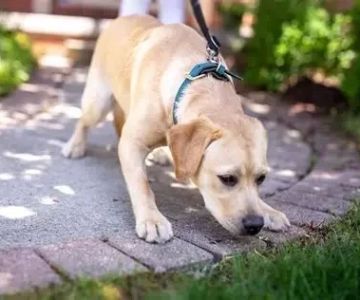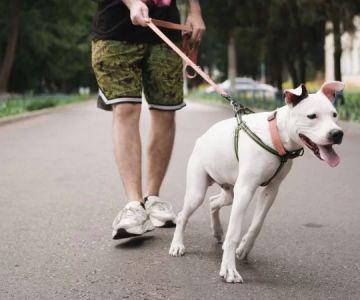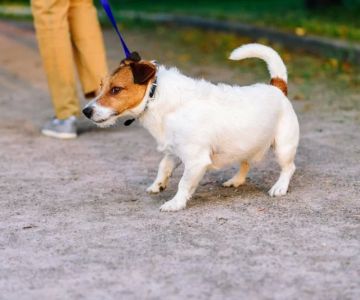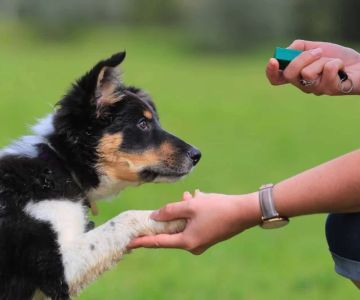How to Stop a Dog from Being Destructive at Home
As a dog owner, it can be frustrating to come home to a destroyed couch, chewed-up shoes, or a shredded blanket. If your dog is being destructive at home, it's essential to understand the underlying reasons for their behavior and how you can effectively address it. In this article, I'll share practical tips and insights on how to stop a dog from being destructive, ensuring that your home remains safe, clean, and harmonious for both you and your pet.
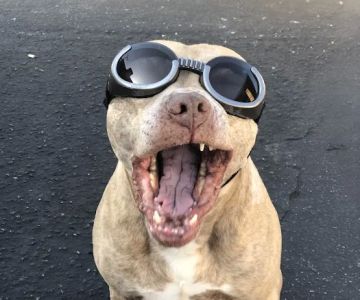
1225 Warren Ave, Downers Grove, IL 60515, USA
See Details1. Understand the Root Cause of Destructive Behavior
Before diving into solutions, it's important to understand why your dog may be engaging in destructive behavior. Some common causes include:
- Separation anxiety: Dogs that are left alone for extended periods may chew or destroy things as a way of coping with stress.
- Boredom: If your dog isn't mentally or physically stimulated, they may resort to chewing or other destructive behaviors to pass the time.
- Teething: Puppies, in particular, are known to chew on things as they go through the teething process.
- Attention-seeking: Some dogs destroy things simply to get their owner's attention, especially if they've learned that such behavior results in a reaction from you.
Identifying the root cause of your dog's destructive behavior is the first step toward finding a solution that works. If you're unsure, consider consulting with a veterinarian or a professional dog trainer.
2. Increase Physical Exercise
One of the most common reasons dogs engage in destructive behavior is a lack of sufficient physical activity. Dogs that don't get enough exercise often have excess energy, which they direct toward chewing and other unwanted behaviors.
To prevent your dog from being destructive, make sure they get enough exercise each day. Depending on your dog's breed, size, and age, they may need anywhere from 30 minutes to two hours of physical activity. Activities like walks, runs, fetch, and playtime can help burn off excess energy, leading to a calmer, happier dog.
Incorporating mental exercise through activities like puzzle toys or training sessions can also keep your dog engaged and reduce destructive tendencies.
3. Provide Chew Toys and Other Safe Alternatives
If your dog is a notorious chewer, providing them with appropriate chew toys is crucial. Dogs, especially puppies, need to chew to soothe their teeth and gums. Giving them toys designed for chewing can help redirect their attention away from your furniture, shoes, or other household items.
Make sure to select high-quality, durable chew toys that are safe for your dog. There are a wide variety of chew toys available, including rubber toys, rope toys, and chew bones. Try different types to see what your dog enjoys most. If your dog is teething, you might also consider teething-specific toys that help alleviate discomfort.
4. Create a Calm and Secure Space for Your Dog
If your dog suffers from separation anxiety, it's essential to create a calm and secure space where they feel safe when you're not around. Consider setting up a designated area, such as a crate or a cozy corner with their bed, toys, and water. Gradually increasing the time they spend alone in this space can help them learn to feel more comfortable when you're not at home.
Using calming aids such as pheromone diffusers, anxiety wraps, or soothing music can also help your dog feel more relaxed and reduce destructive behavior caused by stress.
5. Train Your Dog with Positive Reinforcement
Training your dog is one of the most effective ways to prevent destructive behavior. Positive reinforcement is a powerful tool for teaching your dog what is acceptable and what isn't. When your dog displays good behavior, reward them with treats, praise, or a favorite toy. Over time, they will learn to associate good behavior with positive outcomes, while destructive actions will no longer receive attention.
Incorporate basic commands such as "leave it," "no," and "drop it" into your dog's training routine. Consistent training will help your dog understand the boundaries of acceptable behavior, reducing the likelihood of them chewing or destroying things out of frustration.
6. Consider Professional Help
If your dog's destructive behavior persists despite your efforts, it might be time to seek professional help. A veterinarian can help rule out any medical conditions, and a professional dog trainer or behaviorist can assist in developing a tailored plan to address your dog's specific needs.
In some cases, behavioral issues may be linked to underlying health problems, such as dental pain or gastrointestinal issues. A thorough examination by your vet can ensure that there are no physical causes behind the behavior.
7. Use Deterrents and Safe Barriers
If your dog is particularly persistent in their destructive behavior, you may want to consider using deterrents or safe barriers. Some sprays, such as bitter apple spray, can be applied to furniture and other items to make them less appealing to your dog. Additionally, setting up physical barriers, like baby gates or pens, can help prevent your dog from accessing areas where they might cause damage when you're not around.
8. Build a Routine
Dogs thrive on routine and predictability. Establishing a consistent daily routine for feeding, playtime, walks, and rest can help your dog feel secure and reduce anxiety-driven destructive behaviors. When your dog knows what to expect throughout the day, they are less likely to act out of frustration or confusion.
Conclusion
Dealing with a destructive dog can be challenging, but with patience, consistency, and the right strategies, you can effectively address the issue. Whether it's through increasing exercise, providing chew toys, creating a secure space, or seeking professional help, there are plenty of solutions to stop your dog from being destructive at home.
At Hidden Brook Veterinary, we understand how important your dog's behavior is to you. Our team is here to provide support and advice on all aspects of pet care, from behavioral issues to health concerns. Don't hesitate to reach out to us for assistance!



